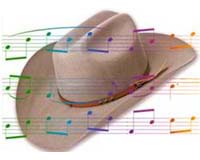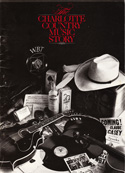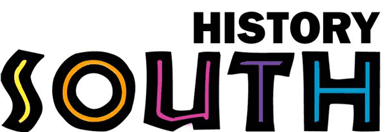Fred Kirby
To generations of youngsters growing up in the Charlotte area, Fred Kirby has been the friendly cowboy on a series of WBTV children’s shows. But his early success came in the 1930s and 1940s when he was one of the area’s most romantic radio and recording stars.

Fred Kirby is a native Charlottean, born July 19, 1910 the son of an itinerant Methodist minister. He learned to play guitar and sing hymns from his mother, but says his professional career started by accident. When Fred was seventeen, his family was living in Florence, South Carolina. While visiting his uncle in Columbia, Fred went with a cousin to a music store across the street from station WIS to buy a new set of strings for his guitar. They decided to first stop in at WIS where his cousin had friends and Fred was left alone for a few minutes in the station’s lobby. Thrilled with the chance to see the inside of a radio station, Fred walked into an empty studio, stepped up to the microphone with his guitar and started singing, pretending that he was making a live broadcast. Unbeknownst to Fred, announcer Charles Crutchfield, overheard the complete performance! Surprising the embarrassed young singer, Crutchfield offered him a job on the spot. “You’ll do,” he told Kirby, “you can start tomorrow.”
The next year, at age eighteen, Fred Kirby moved to WBT Charlotte. He spent ten years there, perfecting a cowboy singing style inspired by blue yodeller Jimmie Rodgers and influenced over the years by Gene Autry, Ernest Tubb and Eddie Arnold. He teamed with Bob Phillips during the early 1930s, but more often sang solo, billed as “The Hillbilly Cavalier.” During one brief period on the Crazy Water Barn Dance the billing was changed to “The Crazy Cavalier,” in keeping with the sponsor’s wishes. The new name somehow didn’t fit the handsome young man in the promotional pictures, dressed like a young Bing Crosby in smart white pants, dark blazer and tie and seated in a swing shaped like a crescent moon.
In 1939 Fred Kirby and Don White struck off for the Midwest as a cowboy singing duo. They broadcast together on WLW Cincinnati and WLS Chicago before their paths parted, Don’s to Nebraska and Fred’s to St. Louis. By now World War II was on, and Kirby earned a special citation from Secretary of the Treasurer Henry Morganthau for his work selling war bonds over St. Louis radio as “The Victory Cowboy.” It was in St. Louis, Kirby remembers, that he began his transition to an entertainer of children. “It was at a benefit at the St. Louis Shriners Hospital—I simply fell in love with the kids.”
Nonetheless, he was happy to return to Charlotte in 1943 when Charles Crutchfield called and urged him to come back to WBT. Kirby returned as a featured soloist with the Briarhoppers in their local show and on the CBS network programs Carolina Hayride and Carolina Calling. In addition, he hosted one of WBT’s first disc-jockey shows and began his first Saturday children’s show, Cowboy Roundup Time.
During this busy period of the mid-1940s Fred Kirby had his biggest success as a composer and recording star. He had begun recording for RCA Victor in Charlotte in February of 1936 and had become a prolific songwriter. The morning after the U.S. dropped the world’s first nuclear warhead on Hiroshima in August 1945, he rushed down to WBT’s Wilder Building studios and composed a new song entitled Atomic Power. Today historians say the gospel-influenced lyric was the first ever written about the atom bomb. Kirby performed it on his radio shows and recorded it for Sonora Records. By the end of 1946 more than half a dozen other artists had recorded it, and Kirby knew he had a hit on his hands.
In 1951, television station WBTV signed on the air, and Fred Kirby was there with the third live show on the new channel, a children’s program called Fred Kirby’s Junior Rancho. Since that time he has been a fixture at WBTV with his horse Calico and sidekick “Uncle Jim” Patterson. In 1985 you can see him each Saturday morning on Channel 3 at 7:30 with Fred Kirby’s Cartoon Corral. During summer months, his young fans pester their parents into trips to Tweetsie Railroad, the Wild West theme park near Boone, N.C., where Cowboy Fred is the featured attraction.
Kirby marks his thirty-fourth year on television in 1985, one of the most enduring children’s stars in the medium. “I’m now on my fourth generation of bringin’ up little ones to big ones,” he says, “and I am very proud of all of them.”
— from George Holt, ed., The Charlotte Country Music Story (Spirit Square Arts Center and North Carolina Arts Council, 1985)
Updated 2015
Fred Kirby rode off into his final sunset on April 22, 1996, but his memory lives on.
One of his red cowboy shirts with white fringe hangs in the permanent exhibition at Levine Museum of the New South. He’s extensively profiled on the website BT Memories. And a CD of his early Charlotte recordings is available from the British Archive of Country Music: That Good Old Utah Trail (BACM 179-CD)

Musicians who took part in the Charlotte Country Music Story concerts
Briarhoppers and Charles Crutchfield
Joe and Janette Carter
Claude Casey
Tommy Faile
George Hamilton IV
Snuffy Jenkins and Homer “Pappy” Sherrill
Johnson Family Singers and Betty Johnson
Fred Kirby
Roy Lear
Wade Mainer
Bill Monroe
Zeke and Wiley Morris
Sam Poplin
Red Clay Ramblers
Arthur Smith
Tennessee Ramblers with Cecil Campbell and Harry Blair
Charlotte/Rock Hill Recordings available on CD (36 page pdf)

